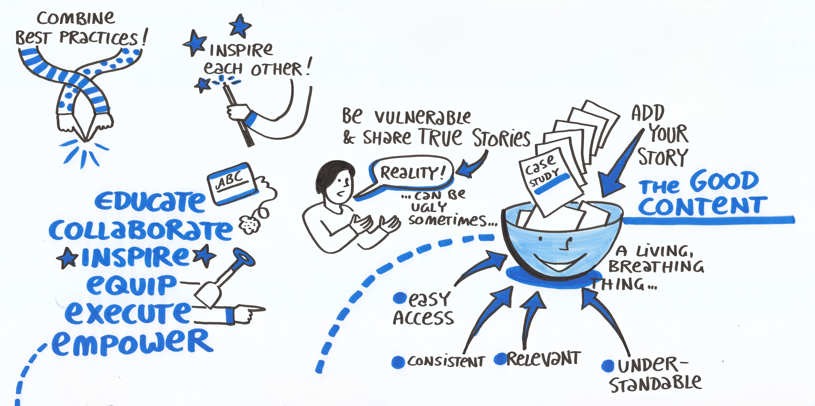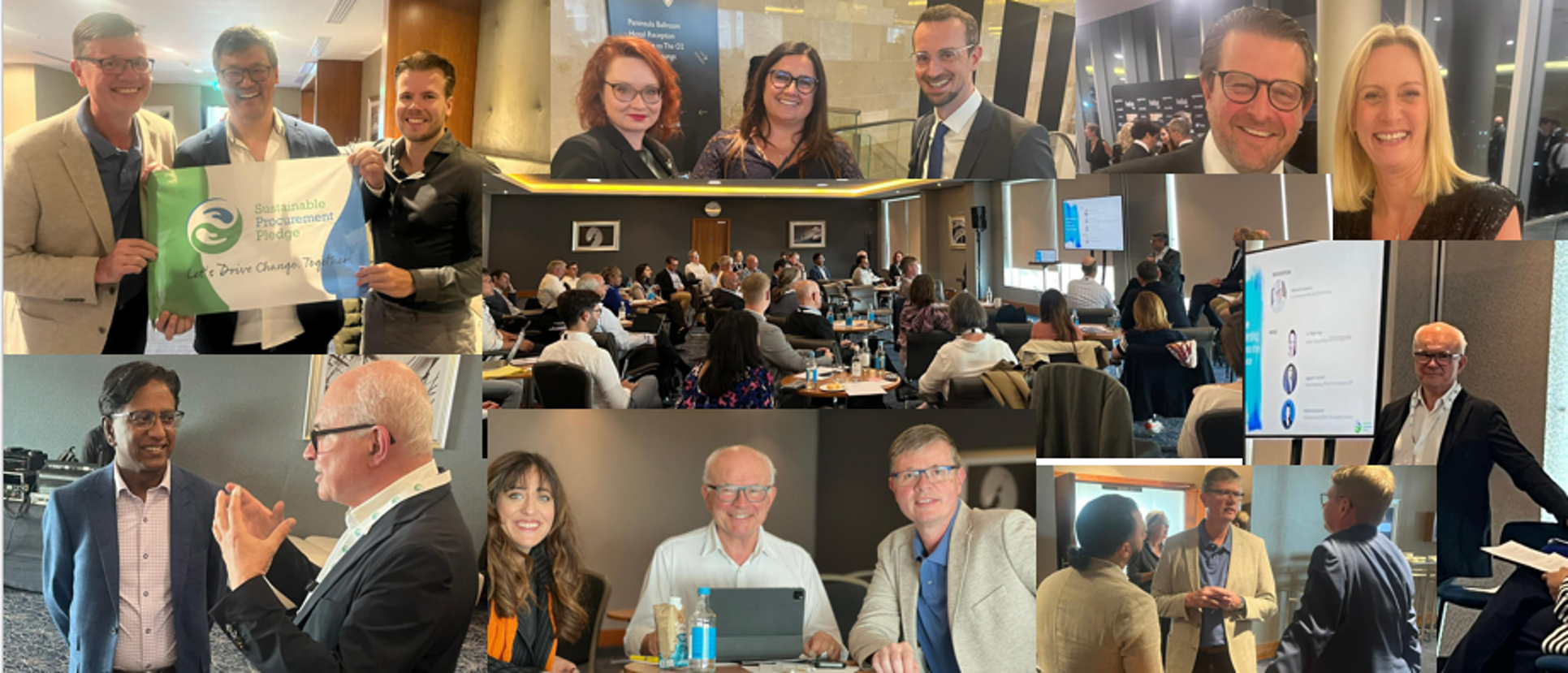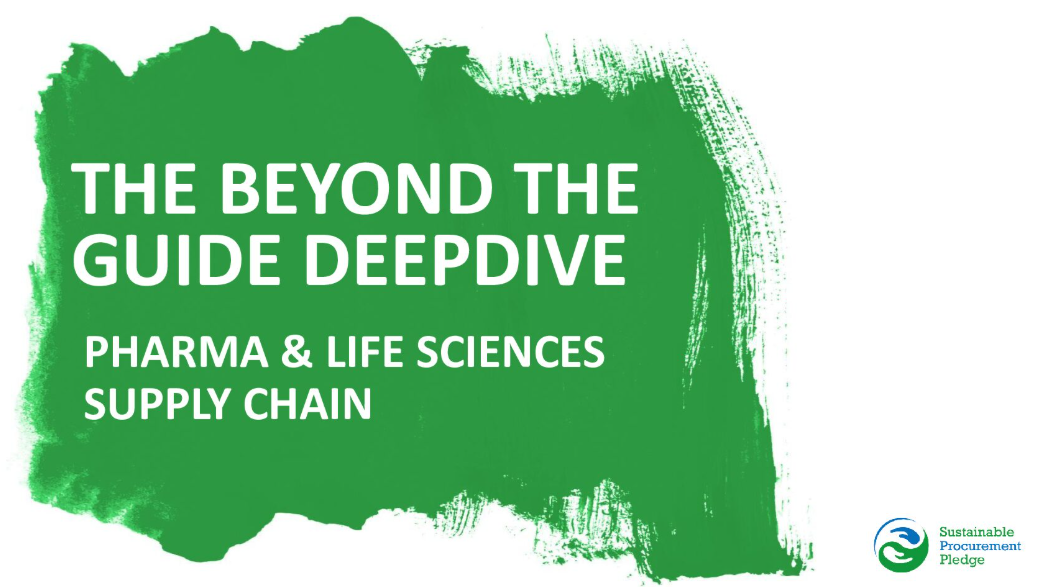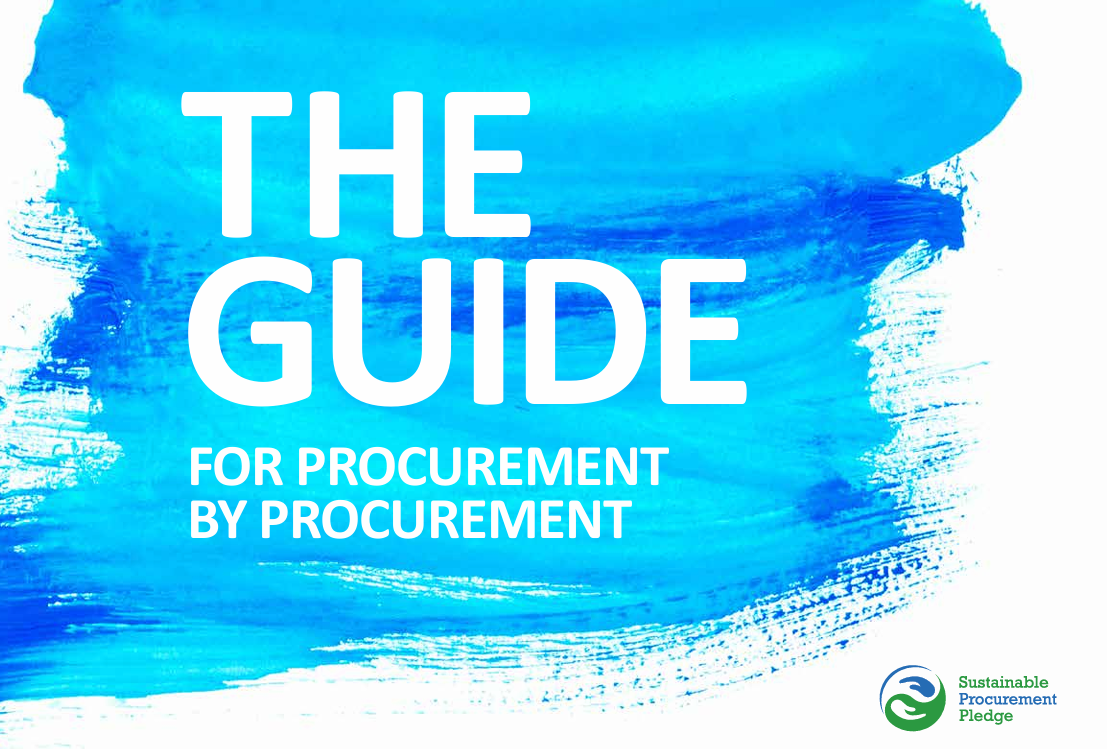At the Sustainable Procurement Pledge (SPP), we are continually inspired by the energy and insight that young professionals bring to the sustainability and procurement community. It’s both encouraging and affirming to see emerging leaders, like Georgia Wornham, recognizing procurement as a lever for change and dedicating their academic and professional journeys to help tackling complex challenges like decarbonization.
We are proud to have supported Georgia’s research and delighted to share her dissertation, “Integrating Carbon Pricing into Procurement Decision-Making: Insights for the Sustainable Procurement Pledge.” Inspired by the energy and conversations around the SPP Carbon Pricing for Procurement Initiative and based on interviews with SPP Community members, her dissertation offers timely, practical insights and recommendations and reflects the kind of forward-thinking mindset we hope to nurture through the SPP community.
Georgia’s work exemplifies what SPP stands for: collaboration, action, and a shared commitment to embedding sustainability at the heart of procurement. We’re excited to give her the stage to present her work in her own words to the SPP Community:
Hi SPP Community!
I’m a recent graduate from the University of Exeter, where I earned an MSc in Global Sustainability Solutions with Distinction. I had the opportunity to collaborate with the Sustainable Procurement Pledge for my dissertation project titled:
I’m excited to share a few key insights from my research and my journey exploring this topic.
What is my thesis about?
My aim was to provide a comprehensive understanding of how carbon pricing strategies are being discussed and applied, particularly in relation to Scope 3 emissions.
Through a combination of literature review and interviews with procurement and sustainability professionals, I investigated how carbon pricing tools, such as internal carbon fees or shadow pricing, can be embedded into procurement processes. The goal is to move beyond reporting and use carbon pricing to actively influence procurement decisions, supplier behaviour, and emissions reductions across the supply chain.
In addition to identifying current gaps and barriers, my study offers practical recommendations for phasing in carbon pricing, ensuring data integrity, and embedding this work into procurement culture for long-term impact.
What inspired my interest in sustainable procurement and carbon pricing in particular?
Throughout my studies, a recurring challenge kept surfacing: the complexity and fragmentation of Scope 3 data. It became clear that addressing this would be essential to driving real progress on decarbonisation.
Around this time, I attended the first Scope 3 Peer Group event in London, where the idea of Guiding Principles for Carbon Pricing Initiatives was beginning to take shape. Hearing those early discussions, and meeting SPP ambassadors and practitioners, helped me see how carbon pricing could offer a practical path forward.
From there, I was able to deepen my understanding through interviews with industry professionals. The collaborative, solutions-driven ethos of the SPP working groups grounded my research in the realities of procurement and demonstrated the power of community in tackling these shared challenges.
Why is carbon pricing gaining traction & how is it relevant for procurement?
Carbon pricing links climate impact to commercial decision-making. Procurement functions have immense influence over a company’s environmental footprint, yet Scope 3 emissions remain difficult to measure, regulate, or control.
By attaching a financial cost to emissions, through shadow pricing or internal carbon fees, organisations can prioritise low-carbon choices, incentivise suppliers, and send a clear signal that emissions reduction is a business priority.
In this context, voluntary initiatives such as the Carbon Pricing for Procurement Initiative represents a proactive response to regulatory gaps, helping procurement professionals embed carbon considerations into everyday decisions.
What are my key research findings?
One of my key findings is that carbon pricing isn’t just a technical tool, it’s a cultural transformation. Even a shadow price on carbon can shift internal conversations, reshape supplier relationships, and bring sustainability to the centre of procurement.
That said, barriers remain:
- Fragmented supply chains make implementation complex
- Lack of standardisation undermines trust
- Many suppliers are not ready for upcoming regulations (like CBAM)
- Data validation is a major challenge as errors in reporting can distort supplier comparisons
Encouragingly, companies are starting small, forming cross-functional teams, and focusing on supplier education. As one practitioner shared: “Bringing existing suppliers on the carbon data journey is better than replacing them.”
What should procurement professionals start doing today?
Start now — even if imperfectly. Build carbon considerations into decision-making, engage your suppliers, and learn from pilot projects. The perfect data will never arrive but meaningful action can’t wait.
Thank you to the SPP Commmunity!
The SPP community was invaluable to my work. I’m grateful to Kathrin Decker and Melissa de Roquebrune from the SPP Global Team, and Oliver Hurrey, Founder of the Scope 3 Peer Group – and everyone I interviewed. Your openness, insight, and passion shaped my thinking and motivated me as I begin my career.
What is next for me?
I’m now a Sustainability Intern at Lucy Electric, gaining hands-on experience. I’m currently mapping waste data across global sites and creating circular economy guidance. I’ve learned first-hand how critical education, behaviour change, and emerging regulations will be to future progress.
Yours,
Georgia Wornham
SPP Ambassador





















